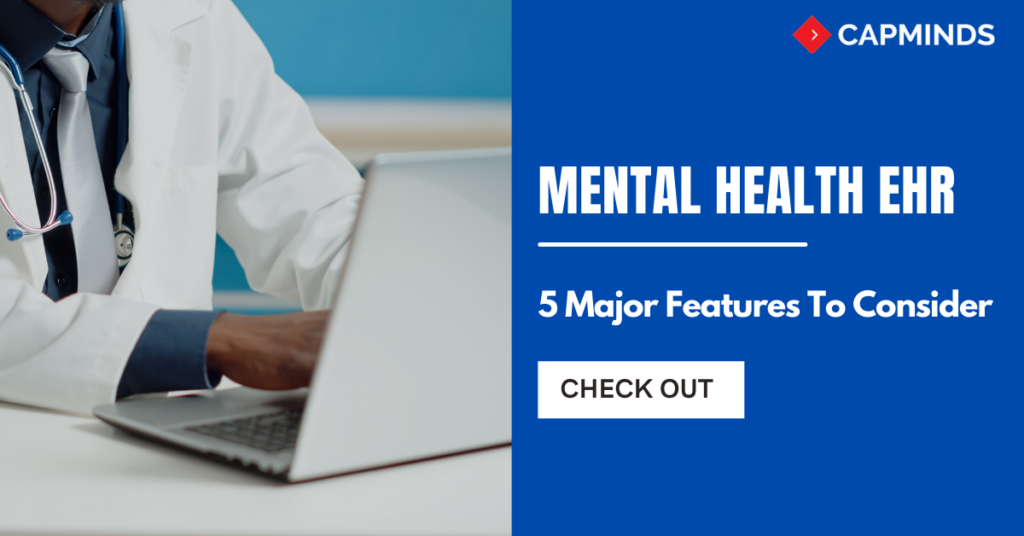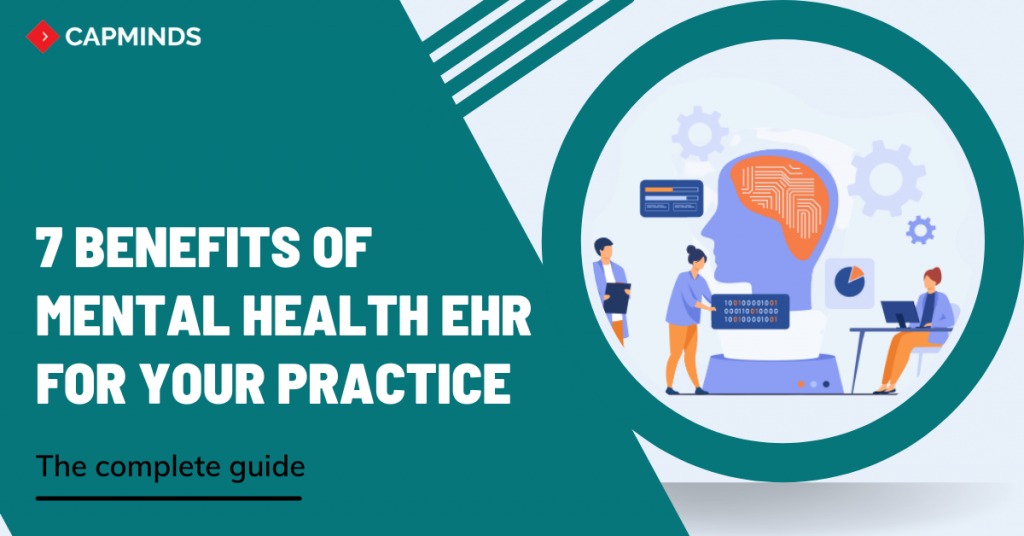Mental Health EHR: 5 Major Features To Consider
When looking for a mental health EHR for your facility, there are many features that you will need to consider to enable you to take advantage of the latest in technology. These features will be the difference between a clunky, inefficient system and a smoothly running facility that gets the most out of its EHR and not only meets—but exceeds—your needs. Even better, a great mental health EHR makes a real difference in the experience of your patients.
Everyone’s needs are different in the mental health field, but there are a few universal themes when it comes to the best mental health EHR. Here is all about electronic health records and the top features to consider for your mental health EHR.
Electronic Medical Records: Why it is so popular today?
Once upon a time, the paper was everywhere. in fact. Confidential information would sit on desks, just a manila cover away from complete and total exposure to the world. Then came computers. Then the Internet. Then, the cloud.
It took a lot of work to make sure patient data, especially data as sensitive as mental health information, could be stored securely electronically, but we’ve done it. We are here now and (hopefully) never going back to the days of dot matrix printers loudly and fitfully producing poorly saturated pages of patient information.
Doctor’s offices, mental health facilities, rehab centers, and more use these records. Those who need a specifically tailored mental health EHR would, of course, be any type of facility that falls under “Mental Health,” from residential to inpatient/outpatient, hospitals, counseling and educational organizations, and niche practices such as eating disorder clinics.
To replace paper records, an electronic version had to be robust, easily accessible, and many, many times more secure. As such, mental health EHRs should always include a client chart, intake documentation, a treatment plan, patient demographics, insurance information, assessments, and forms, just to name a few.
Mental Health EHR: Task Management
Your mental health EHR will be of no use to you unless it improves or even drives task management. The best mental health EHRs will help you manage the ancillary, mundane tasks that are a part of a daily routine. These tasks might not be interesting, but they are far from mindless.
These little things are the very fabric of your facility. A good mental health EHR reminds staff to sign notes and assessments, review lab results and approve medications, just to name a few. A great EHR will do all of this while being solution-based and covering the full business spectrum and the full continuum of care.
Your mental health EHR is a tool to help providers stay patient-focused while keeping patient information organized and secure.
RELATED: THE COMPLETE GUIDE TO TELEHEALTH FOR MENTAL HEALTH
Mental Health EHR: Expedite Patient Encounters
The last thing you want when meeting with a patient—whether he or she is in crisis or not—is to spend a lot of time filing the health history. The best mental health EHR helps you with this by giving you all this information with the click of a button while having full patient information available on one screen.
Your EHR should make patient history—including medications, allergies, diagnosis, immunizations, and other key data points easily accessible. You, then, spend more time treating your patient and less time facing a screen.
Mental Health EHR: Templates and Order Sets
It’s possible you and your staff like things the way they are. You may have a great system, even if only your office manager knows exactly how that system works.
A good mental health EHR allows you to build order sets and templates to your specifications. Further, a really good EHR should enable you to do this as you are treating your patient. Your time is maximized and the clinical process is sped up and strengthened.
Mental Health EHR: Attractive User Interface
We all know your staff won’t want to use an EHR that isn’t user-friendly. And when they are using it, it won’t be with the effectiveness and trust in the software that you were hoping for (and paid for). That’s why you need a mental health electronic health record that is user-friendly, intuitive, and solution-based.
With your mental health EHR, you should be able to document the entire clinical encounter on a single screen, without reloading any pages. This saves time and effort, as well as staff patience, and allows more time to be spent patient-facing. The objective of great electronic health records is to move through the system with just a few clicks and even fewer frustrations.
Mental Health EHR: Access From Any Device 24/7
You’re no longer using paper to keep track of medical records, so why on earth would you commit to an electronic health record that nails you to a certain location. You’re hardly ever at your desk, and neither should your EHR be. A solid mental health EHR should be web-based and accessible from a laptop, phone, or tablet. Get answers and check in on the go.
Don’t wait to get back to the office before you start doing the best for your patients. An ideal mental health EHR should allow you to provide care, no matter where you are.
Final Thoughts
Finding the best EHR for your healthcare practice is a great job. Before choosing, get educated about the EHR features. The purchase of an EHR platform should be a long-term investment, so make sure all of your practice needs are being met.
The best mental health EHR providers like CapMinds offer advanced features, integration options, and free product demos.
CapMinds offers the best EHR implementation services and allows mental health clinics to:
- Integrated billing support and more
- Set up a secure online patient portal to schedule and manage appointments
- Conduct online telehealth visits with your patients
- Provide clinical and financial reports





